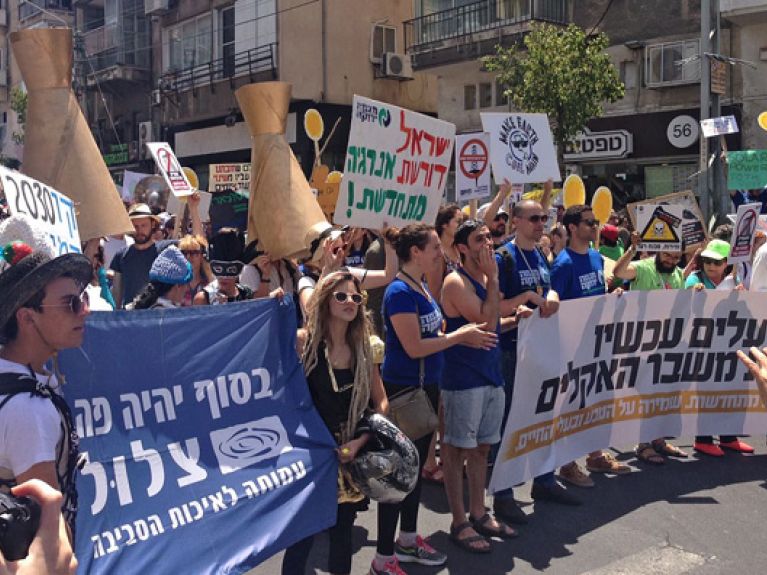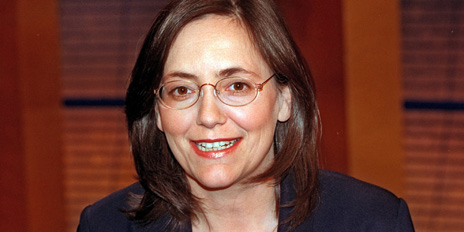“Environmental protection and sustainable policy”
The Heinrich Böll Foundation in Israel promotes social debates. In so doing, it takes a quotation from its namesake as its leitmotif: “Interference is the only way to remain realistic”.

The Tel Aviv offices of the Heinrich Böll Foundation, affiliated with Alliance 90/The Greens party, has existed officially since 1998. It already sponsored its first projects in Israel, however, in 1992. In addition to human rights, it focuses on ecological sustainability and gender democracy.
In cooperation with local partners, the foundation organizes conferences and workshops, publications and research. The Foundation’s conference room is open to meetings of activists and non-governmental organizations that reflect the diversity of Israeli civil society. Public events take up current issues. For example, the recently inaugurated “Heinrich Bar Talks” discuss the influence of the media on the public debate about terror in Israel and Germany.
The German-Israeli Literature Festival, which annually alternates between Tel Aviv and Berlin and brings together known and less known writers, has been part of the Foundation’s programme since 2005. The theme in 2016 was “Uncharted Territory” and referred to the experience of flight and migration, farewell and arrival. Commissioned by the Foundation on the occasion of the 25th anniversary of Heinrich Böll’s death, the first selection of the writings of the German winner of the Nobel Prize for Literature appeared in Hebrew in 2010. Böll’s call for to citizens to become politically engaged is the leitmotif of the Foundation that is named after him: “Interference is the only way to remain realistic”.
4 questions for Office Supervisor Kerstin Müller:

What are the key themes of the Foundation’s work in 2017?
First, we want to make a contribution to a future peace between Israel and its neighbours. Secondly, we are concerned with strengthening the democratic character of the country and particularly with respect to the rights of minorities. Thirdly, we support the development of environmentally sustainable policy in Israel. Fourthly, we place particular emphasis on relations between Germany and Israel, which we want to foster and extend. Finally, in all these areas, the integration of gender aspects and the participation of women are especially important.
How does your work differ from that of the other institutions?
Our Foundation focuses on environmental protection and the development of sustainable polices. Likewise, equal rights for women are a cross-cutting issue for us in all policy areas. Both commitments are a hallmark of the Böll Foundation. Especially from the ecological point of view, we are a sort of rallying point for the Israeli environmental movement.
Who would you like to reach with your work? And how well have you succeeded in this?
We want to reach Israeli civil society, especially those who are fighting for the end of the occupation and a peaceful settlement with the Palestinians. We also work together with those who are promoting democracy in the sense of our Foundation and strengthening minority rights and women’s rights.
The Foundation’s work is certainly very important for civil society, but it has become increasingly difficult to support a critical civil society given the particular conditions in Israel and internationally.
What do you see as the greatest challenge for German-Israeli relations?
I see the biggest challenge in the increasing tension between the two countries. That is, the more Israeli policy turns against a two-state solution, the more difficult it becomes for Germany to act as an advocate for Israel and Israeli interests on the international stage. We want to be such an advocate, we must be, but this role is becoming more and more difficult in the face of political changes, since at present there is no interest on the Israeli side to advance a two-state solution.
Photo: https://creativecommons.org/licenses/by/2.0/deed.de
© www.deutschland.de

